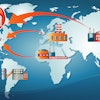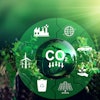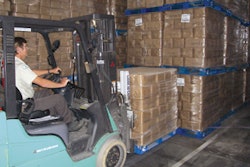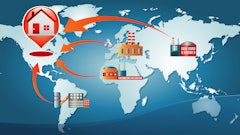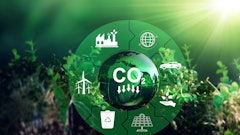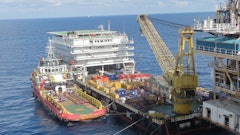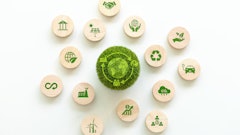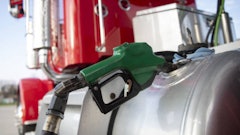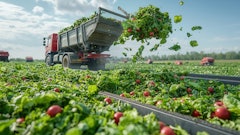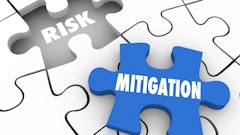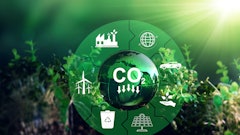Seems like a lot of people are talking about green these days and it's not because St. Patrick's Day is around the corner. Sustainability—the ability to meet present needs without compromising those of future generations—has become a huge topic for the boardroom. It's not just how much money a company makes, but how it makes its money.
Corporate environmental responsibility is not a new idea in Europe, where grocers such as Tesco and Sainbury's have been competing for years to become the greenest retailer. The concept is now moving up the supply chain, however, with ProLogis building an "environmentally responsible" distribution center for Sainsbury. The environmental features will include the use of photovoltaic panels, which convert energy from the sun into electricity, an on-site power plant that reuses the heat produced by air conditioning and an on-site recycling facility.
In the U.S., consumers are becoming more concerned about environmental issues as well, and this hasn't gone unnoticed by Wal-Mart. Last year, the retailing giant outlined its packaging reduction initiative, which is to reduce overall packaging by 5 percent. It's easy to question Wal-Mart's motives, until you take a look at the cost savings associated with being green. The move will not only prevent millions of pounds of trash from reaching landfills, but it will also save 667,000 metric tons of carbon dioxide from reaching the atmosphere. That's the equivalent of taking 213,000 trucks off the road annually and saving 66.7 million gallons of diesel fuel from being burned.
Wal-Mart, which operates the nation's second largest fleet of trucks, has pledged to increase the efficiency of its fleet by 25 percent over the next three years—and double the efficiency over the next 10 years. It's hard to imagine just how much the company will save in fuel costs alone, but it's got to be in the billions of dollars.
"Business will be the driving force behind sustaining the environment," said Rick Gylling, Kraft Food's vice president, supply chain sustainability, at the Logicon Logistics and Supply Chain Management Conference held earlier this month in Las Vegas. "It impacts the bottom line in three ways—economically, environmentally and socially. By focusing on sustainability, there are substantial benefits and cost reductions that can be achieved throughout the supply chain."
Gylling outlined Kraft's sustainability focus, which includes using less packaging, reducing energy use and increasing recycling.
Other retailers and manufacturers are following suit. Pork producer Smithfield Foods reported that it saved 54.7 million cubic feet of natural gas, 5.7 million kilowatt hours of electricity and 4.8 million gallons of diesel fuel last year as a result of various energy conservation projects. Smithfield is a member of the Chicago Climate Exchange (CCX), a voluntary group whose members have committed to reduce greenhouse gas emissions by a minimum of 6 percent by 2010.
Sustainability is good for the environment and it's good for business. Later this year, we will do a special report on the topic. If you would like to tell us what your organization is doing in this area, please e-mail me.

